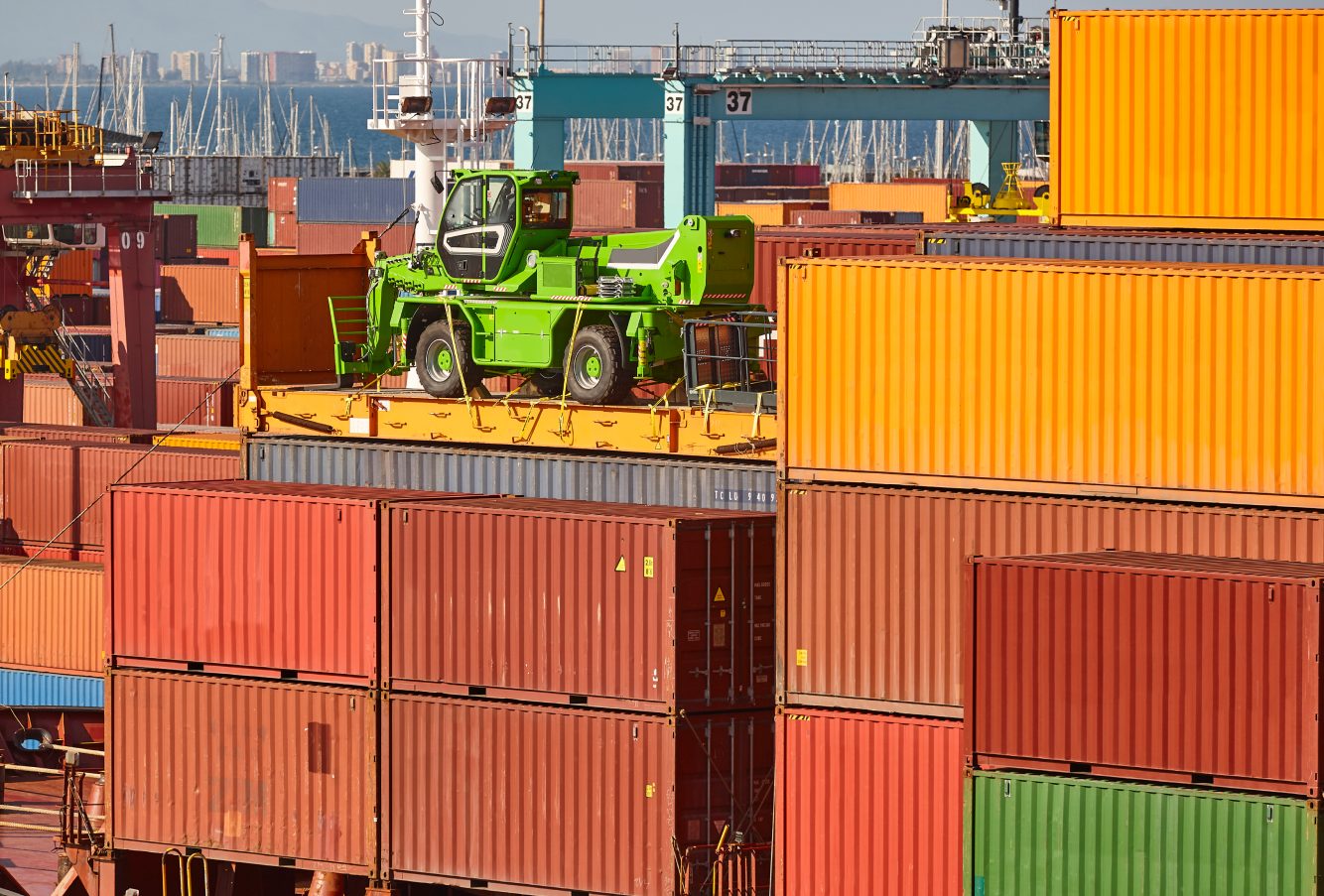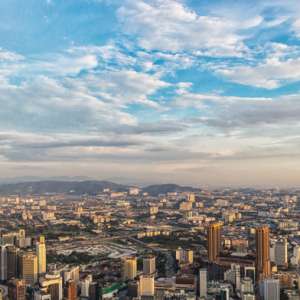A Comprehensive Guide to Shipping from Wenzhou Port to Malaysia
Latest update on 23 August, 2024 by Angelina Pang– Marketing Analyst at FreightAmigo
The trade route from Wenzhou Ocean Port to Malaysia is an essential corridor for businesses aiming to tap into the Southeast Asian market. In this comprehensive guide, FreightAmigo will equip you with the knowledge needed to navigate this process of shipping from Wenzhou Port to Malaysia effectively. Covering everything from logistical considerations to required documentation, the guide will help you optimize your operations, minimize costs, and ensure timely deliveries. Whether you’re an experienced exporter or new to international shipping, this resource will provide valuable insights to enhance your shipping strategy from Wenzhou to Malaysia.
Want to Instantly Compare International Express, Air, Sea, Rail Freight And Truck Logistics Management Solutions To Control Transportation Costs?
Wenzhou Port: A Pivotal Maritime Gateway
Wenzhou, a coastal city in Zhejiang Province, China, has emerged as a pivotal maritime gateway for international trade. Its strategic location and state-of-the-art port facilities have made it a preferred choice for businesses seeking efficient logistics solutions. Among the destinations served by the Wenzhou Ocean Port, Malaysia stands out as a significant trading partner, with a thriving bilateral relationship.
Shipping Methods from Wenzhou Ocean Port to Malaysia
When it comes to shipping goods from Wenzhou to Malaysia, businesses have two primary options: sea freight and air freight. Each method offers distinct advantages, and the choice ultimately depends on factors such as cargo type, time constraints, and budget considerations.
Sea Freight
For businesses prioritizing cost-effectiveness and transporting non-perishable goods, sea freight from Wenzhou to Malaysia is an attractive option. This mode of transportation is particularly suitable for bulk shipments or cargo that is not time-sensitive.
Full Container Load (FCL): Full Container Load (FCL) shipping involves dedicating an entire container to a single consignment. This option is ideal for businesses with large shipment volumes, as it offers cost savings and streamlined logistics. FCL shipments from Wenzhou to Malaysian ports typically take 10 to 20 days, depending on the specific routes and carriers.
Less-than-Container Load (LCL): For businesses with smaller shipment volumes or those seeking to consolidate cargo, Less-than-Container Load (LCL) shipping is a viable solution. In this scenario, multiple consignments from various shippers are consolidated into a single container, reducing costs through shared resources. However, LCL shipments may take slightly longer, ranging from 15 to 30 days, due to the additional processes involved in consolidation and deconsolidation.
Air Freight
When time is of the essence, air freight from Wenzhou Ocean Port to Malaysia offers unparalleled speed and agility. This mode of transportation is particularly suitable for time-sensitive shipments, perishable goods, or high-value cargo that requires expedited delivery.
Air freight transit times from Wenzhou Ocean Port to major Malaysian airports, such as Kuala Lumpur International Airport (KUL) or Penang International Airport (PEN), typically range from 1 to 5 days. However, it’s essential to note that air freight is generally more expensive than sea freight, and certain cargo types may be subject to restrictions or additional regulations.
Factors Influencing Shipping Costs from Wenzhou Port to Malaysia
Determining the shipping costs from Wenzhou Ocean Port to Malaysia involves considering various factors that can impact the final price. Understanding these elements can help businesses make informed decisions and optimize their logistics strategies.
Transportation Mode and Distance: The chosen shipping method, whether sea freight or air freight, significantly influences the overall cost. Generally, sea freight is more economical for larger shipments over longer distances, while air freight is more expensive but faster for time-sensitive cargo or smaller shipments.
Cargo Type and Weight: The nature of the cargo being shipped plays a crucial role in determining shipping costs. Factors such as weight, dimensions, and any special handling requirements (e.g., temperature-controlled or hazardous materials) can impact the final cost. Heavier or oversized cargo may incur additional surcharges.
Fuel Costs and Surcharges: Fluctuations in fuel prices can directly impact shipping costs, as carriers often adjust their rates accordingly. Additionally, various surcharges, such as terminal handling charges, security fees, or currency exchange rates, can contribute to the overall cost.
Customs Duties and Taxes: When importing goods into Malaysia, businesses must account for applicable customs duties and taxes. These costs are typically calculated based on the cargo’s value, type, and country of origin. Understanding and complying with Malaysian customs regulations is essential to avoid delays or additional expenses.
Insurance and Additional Services: Cargo insurance is an optional but recommended expense to protect against potential losses or damages during transit. Additionally, businesses may require additional services such as warehousing, cargo inspection, or customs clearance, each with its associated costs.
Choosing the Right Logistics Partner
Navigating the complexities of international shipping can be challenging, especially when dealing with customs regulations, documentation, and coordinating various logistics processes. Partnering with a reliable and experienced freight forwarder can streamline operations, minimize risks, and ensure a seamless shipping experience from Wenzhou to Malaysia.
When selecting a logistics partner, consider the following factors:
- Industry experience and expertise
- Global network and partnerships
- Comprehensive range of services
- Transparency and communication
- Reputation and customer satisfaction
By collaborating with a reputable freight forwarder, businesses can leverage their knowledge, resources, and connections to optimize their supply chain operations and achieve cost-effective, efficient, and compliant shipping solutions.
Customs Clearance from Wenzhou Ocean Port to Malaysia
Importing goods into Malaysia requires compliance with various customs regulations and procedures. Failure to adhere to these requirements can result in delays, fines, or even the seizure of cargo. To ensure a smooth and compliant shipping process, businesses should familiarize themselves with the following aspects:
Documentation Requirements: Proper documentation is essential for customs clearance in Malaysia. This typically includes commercial invoices, packing lists, bills of lading or air waybills, and any additional documents specific to the type of cargo being imported. Ensuring accuracy and completeness in these documents is crucial to avoid delays or complications.
Harmonized System (HS) Codes: The Harmonized System (HS) is an internationally standardized system for classifying goods. Each product is assigned a specific HS code, which is used to determine applicable customs duties, taxes, and other regulatory requirements. Businesses must accurately classify their goods using the correct HS codes to ensure compliance and avoid penalties.
Customs Duties and Taxes: Depending on the type of goods being imported, businesses may be required to pay customs duties and taxes. These fees are typically calculated based on the cargo’s value, origin, and HS code classification. Understanding the applicable rates and ensuring accurate calculations is crucial to avoid potential issues during customs clearance.
Restricted or Prohibited Items: Malaysia has specific regulations regarding the import of certain goods, such as hazardous materials, controlled substances, or products subject to trade restrictions. Businesses must familiarize themselves with these regulations and obtain necessary permits or licenses, if applicable, to ensure compliance.
Free Trade Agreements (FTAs): Malaysia has entered into various Free Trade Agreements (FTAs) with other countries and regional blocs. These agreements can provide preferential tariff rates or exemptions for goods originating from FTA partner countries. Businesses should explore the potential benefits of FTAs and ensure they meet the requirements to take advantage of these trade facilitation measures.
By understanding and adhering to Malaysian customs regulations, businesses can minimize risks, avoid delays, and ensure a smooth and efficient import process for their shipments from Wenzhou.
Cargo Insurance: Protecting Your Cargo
International shipping inherently carries risks, such as potential damage, loss, or theft during transit. To mitigate these risks and protect their investments, businesses should consider obtaining cargo insurance. This form of insurance provides financial protection in the event of unforeseen circumstances, ensuring that losses are covered and minimizing the impact on business operations.
When selecting a cargo insurance policy, businesses should consider the following factors:
- Coverage scope: Ensure that the policy covers the specific risks associated with the chosen shipping method (sea freight or air freight) and any potential transit routes.
- Insured value: Determine the appropriate insured value based on the cargo’s actual value, including the cost of goods, freight charges, and any additional expenses.
- Deductibles and exclusions: Understand the policy’s deductibles (the amount the insured party must pay before the insurance coverage kicks in) and any exclusions or limitations that may apply.
- Insurance provider: Choose a reputable and financially stable insurance provider with experience in cargo insurance and a track record of prompt claims processing.
By investing in cargo insurance, businesses can have peace of mind knowing that their shipments from Wenzhou to Malaysia are protected against potential losses, allowing them to focus on their core operations and mitigate financial risks.
Conclusion
Shipping from Wenzhou Port to Malaysia can be complex, but with the right knowledge and preparation, it becomes a manageable and rewarding endeavor. By understanding the logistics, mastering the necessary documentation, and implementing best practices, you can ensure efficient and cost-effective shipping operations. This guide has provided you with the essential tools and insights to optimize your strategy and successfully expand your business into the Malaysian market. Embrace these opportunities and watch your international trade efforts thrive.
If you are looking for logistics experts, please visit FreightAmigo Page
Read More:
Shipping from Guangao to Malaysia | FreightAmigo
The Ultimate Guide to Shipping from Guigang to Malaysia | FreightAmigo
Shipping from Mawei Port to Malaysia | FreightAmigo
If you have any inquiries on logistics / supply chain, feel free to contact FreightAmigo now:
Chat with us online | Hotline: +852 28121686 | WhatsApp: +852 27467829










































